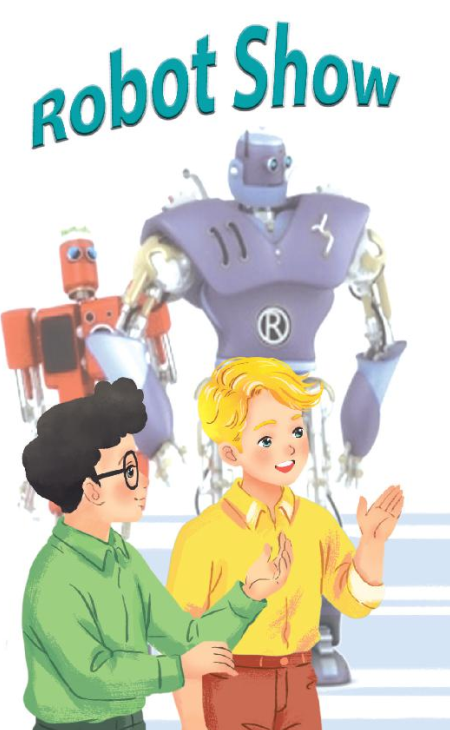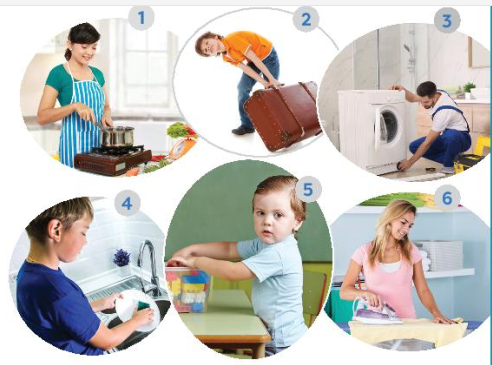(Page 58)
THIS UNIT INCLUDES:
Vocabulary
Daily activities
Pronunciation
Tones in statements
Grammar
Superlative adjectives: short adjectives (smallest, tallest, etc.)
Skills
• Reading about an international robot show
• Talking about what robots can do Listening about what robots can do
• Writing a paragraph about a robot you would like to have
Everyday English
Expressing agreement and disagreement
👉GETTING STARTED
At an International Robot Show
1. Listen and read. 👉

Nick: Dr Adams! Can you tell us about the robots in the show, please?
Dr Adams: Sure. This is H8, a home robot. It can do the dishes, iron clothes, put toys away...
Nick: It looks very useful!
Dr Adams: Yes, it can even make meals.
Phong: Look! That's the biggest robot in the show.
Dr Adams: Right, it's WB2, a worker robot. It's the strongest and fastest robot here.
Nick: What can it do?
Dr Adams: It can move heavy things or repair broken machines.
Nick: And what is this?
Dr Adams: It's Shifa, a doctor robot. It's the smartest robot. It can help sick people and do many things like humans.
(Page 59)
2. Read the conversation again and tick (✓) T (True) or F (False).
| T | F | |
| 1. H8 is a very useful robot. | ||
| 2. WB2 can't repair broken machines. | ||
| 3. Shifa is a doctor robot. | ||
| 4. H8 is the fastest in the robot show. | ||
| 5. Shifa is very smart. |
3. Complete the following sentences, using the adjectives in the box.
| fast smart useful heavy strong |
1. My dad bought me a very _____ home robot last week. It helps me to do many household chores.
2. This is a very _____ car. It can travel at a speed of 300 km per hour.

3. He's very _____. He can move a big car!
4. They're making a very _____ robot. It can understand 30 languages.
5. The table is too _____ for me to move on my own.
4. Match the following activities with the pictures.
a. iron clothes
b. make meals
c. move heavy things
d. do the dishes
e. repair a broken machine
f. put toys away

5. GAME Miming
Work in groups. A student mimes one of the activities in 4 and the others try to guess. Then swap.
Example:
A: What am I doing?
B: You're doing the dishes.
A: Yes, that's right. / No, try again.



































